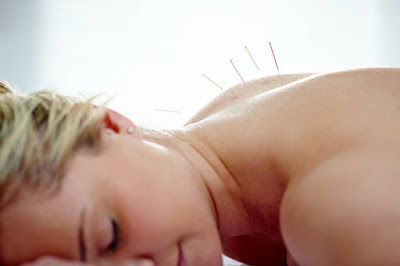Acupuncture is a five-thousand-year-old Chinese medicinal method that has lately been resurrected in China and presented to Western physicians.
It is based on the notion that subtle energy flows through
the body in accordance with the Yin and Yang cosmic principles.
Yang denotes sunshine, activity, masculinity, and hardness,
whereas Yin denotes darkness, moon, passivity, softness, and femininity.
Health and illness are influenced by the balance of these
energy in the human body.
By placing needles at critical locations for varied durations of time, acupuncture treatment modifies these energy pathways.
Acupuncture may also affect anesthesia during surgical
procedures.
Both ancient Chinese and Hindu medical systems have a
philosophical or mystical perspective of the cosmos, and the concepts of Yin
and Yang and subtle energy flows are similar to the Hindu yoga system's
kundalini energy.
The asanas, or physical poses, in hatha yoga alter the vital
energy in the body through affecting muscle tension and relaxation.
A comparison may also be drawn between Wilhelm Reich's ideas
and his notion of orgone energy.
Shiatsu and acupressure, a kind of acupuncture without
needles, as well as acu puncture maps for detecting ear and hand points, are
examples of unique acupuncture advancements.
Dr. Lester Sacks, a Los Angeles physician, developed an ear
acupuncture method in which an unique "gun" discharges a surgical
staple into the ear at a specific acupuncture point to aid patients who desire
to lose weight or quit smoking, drinking, or using drugs.
When the patient feels a desire building on, he wiggles the
strap, and the yearning seems to go away.
The "MA-roller," a specifically formed wooden rod on which the patient rests, is a simple instrument for self-treatment of acupuncture sites on the back.
Great Earth Therapeutics, Forest Row, Sussex, England,
markets it.
In 1928, the French consul in China, Soulie de Morant,
returned to France with the writings he had translated into French and
encouraged other doctors to investigate the practice.
Following WWII, interest in the subject expanded
significantly across Europe and America.
A group of non-conventional doctors in the United States
created the Acupuncture International Association in 1949.
In 1960, J. R. Worsley founded the Chinese College of
Acupuncture in England.
However, in the early 1970s, when the United States rebuilt
good ties with the People's Republic of China, acupuncture saw a big boost in
popularity in the West.
The National Institute of Health sponsored an Acupuncture
Research Conference in 1973, signaling formal support for acupuncture's claims
to be tested.
A number of acupuncture books arose during the following
several years, as well as acupuncture societies and periodicals.
Acupuncture has a large literature base, and various
periodicals, such as Acupuncture News, American Journal of Acupuncture, and
Journal of the Acu puncture Association of Great Britain, are now dedicated to
the discipline.
1424 16th St. NW, Washington, DC 20036 is the address for
the American Association of Acupuncture and Oriental Medicine.
At 2140 Conestoga Rd., Chester Springs, PA 19425, there is
also an International Veterinary Acupuncture Society.
You may also want to read more about parapsychology and occult sciences here.


